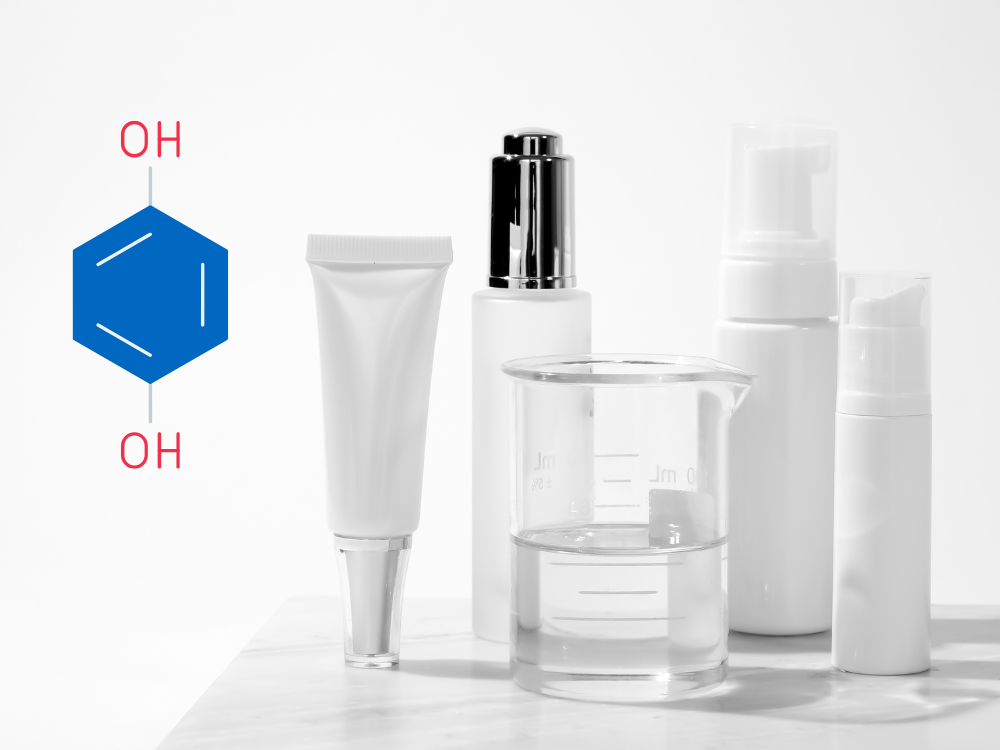
In 1972, the FDA established an over-the-counter (OTC) drug review process to regulate drug safety and efficacy. As part of this effort, the FDA created a “monograph” for each medication category, including hydroquinone products. The monograph outlines active ingredients, approved uses, doses, testing requirements, and labeling standards. If a drug meets the monograph criteria, it can be marketed without undergoing a full FDA review.
What is hydroquinone? Hydroquinone is a topical ingredient used for skin lightening and treating hyperpigmentation. Commonly sold as a hydroquinone cream or hydroquinone skin bleaching cream, it has long been a popular treatment option. However, because of evolving safety concerns, hydroquinone faced more scrutiny compared to other OTC drugs.
The FDA classifies OTC drugs into three categories:
- Category I: Generally recognized as safe and effective, GRASE
- Category II: Not GRASE
- Category III: insufficient data for classification
Over time, this classification system became outdated. It struggled to keep pace with evolving drug development, especially for products like hydroquinone over the counter treatments. As a result, some OTC drugs, including hand sanitizers, sunscreens, and hydroquinone products, were marketed without a final monograph. Today, to purchase the best hydroquinone cream, many consumers require a hydroquinone prescription or must seek hydroquinone cream over the counter alternatives. If you are searching for the best hydroquinone cream over the counter or trying to understand over the counter hydroquinone options, it’s important to stay informed about current FDA regulations.
The CARES Act
In March 2020, the CARES Act was signed, reforming the OTC monograph process. A final determination was made for all OTC categories. Drugs in Category I and some in Category III may remain on the market if specific criteria are met. Category II drugs had to be removed within 180 days of enactment.
Hydroquinone, a 2% cream marketed as an OTC skin-lightening agent, was classified as Category II. It has since been removed from shelves. Similar bans on hydroquinone have been seen in Europe. This issue was largely unnoticed and hidden in unrelated legislation.
Derms Disagree
Dermatologists disagree on whether 2% hydroquinone is safe. The unmonitored use and overuse of hydroquinone have raised safety concerns. Common side effects include irritant and allergic contact dermatitis, and ochronosis can result from long-term use. No cancer data has been reported in humans using topical hydroquinone. Hydroquinone, when used short-term, remains safe and effective for treating hyperpigmentation.
The bigger issue is the legislative process, which was highlighted by this ban. It only became apparent because of the CARES Act.
Shop our favorite skincare and more on Derm to Door.com!
Head back to our blog here!


